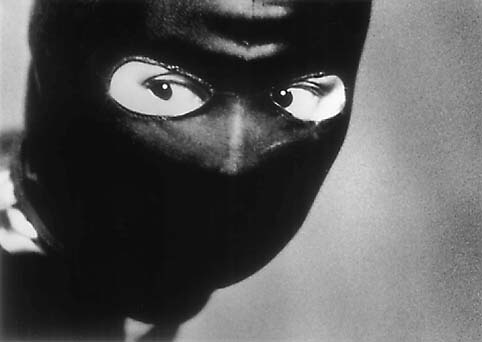I've got a working draft of a cinema schedule for this and next month: doc.
Woody Allen's latest (Midnight in Paris), about expatriates in '20s Paris (I bet with all sorts of fun references to Hemingway etc) is now playing at the Hollywood... I am so full of snide things to say I'll just leave it at "I don't plan on going to this one". Tree of Life is still playing there as well, so anyone who missed that one should definitely get on it now for a unique and very emotional experience. Cave of Forgotten Dreams in 3D has returned to Living Room Theaters; I missed that one myself in its first runs here and in NY, so I'm going tonight. Errol Morris' latest, Tabloid is also showing there at present. I've loved everything I've seen by him, and with subject matter as outrageous as this I'm excited to see what he's come up with. Back at the Hollywood later this month are two grindhouse adventures: kung-fu "classic" Snake in the Monkey’s Shadow, which I know I've seen but can't remember for the life of me (not a good sign), and Italian zombie flick Burial Ground: Nights of Terror, of which I am skeptical simply because it's from the '80s. Finally, on the 25th Gus Van Sant himself is presenting James Franco's assemblage of My Own Private Idaho outtake footage, called My Own Private River. It is funny to me that one prettyboy would be so enamored by another, but I am in fact interested to see this, despite the fact that I don't really care for Idaho. In a similar project, somebody's finally taken the time to put together some of the Merry Pranksters' voluminous stoned road-trip footage into a supposedly watchable (if not coherent) object; much of this was released on a series of video cassettes produced (with hand-painted covers!) by the old fogies themselves ten or fifteen years ago. Having seen those, I think I may stay away from this one, cleverly titled Magic Trip, playing at a few places this month including Living Room.
Cinema 21 offers us The Adults in the Room, a 2010 indie Portland part-drama/part-documentary-about-itself that I remember wanting to see when it came out. It's about complicated relationships. I still think it looks interesting; it starts Tuesday, as does The Man Who Fell to Earth, Nicholas Roeg's disappointing almost-scifi meander starring David Bowie as an alien and Rip Torn as an asshole. I saw this film for the first time a month ago and, Roeg's other '70s films being among my all-time faves, was actually shocked at how awful it is. Its bad acting, stupid idea, shoddy workmanship, overlength, and sleep-inducing music is not even close to balanced by its beautiful and impressive cinematography.
The NW Film Center has quite a few fun things, but not nearly as many as next month. I'm most excited about The Conformist, which gets a full weekend run, as does Blank City, a documentary about the famous Lower East Side Scene of the late '70s, and World on a Wire, early '70s scifi by Rainer Werner Fassbinder. Count me in. Bobby Fischer Against the World is a documentary about Bobby Fischer. James Benning's minimal masterpiece Ruhr is playing on the 14th, 15th, and 17th: you can read what I wrote about it here, or not; either way, know that it kind of changed my life. In the year since I've seen it, I've thought about that movie at least a couple times a week. If there's one not to miss this month, it's Ruhr- but be ready for a challenging experience.
Aside current run garbage the Laurelhurst is programming The Goonies which I will probably never see and Blow-Out, which has its moments but is pretty much just bad.
Projected Highlights of Next Month: 3-hour Scorsese documentary on George Harrison, three '60s films about avant-jazz, double feature Performance and Vertigo with Todd Haynes in attendance, and The Rules of the Game.

















